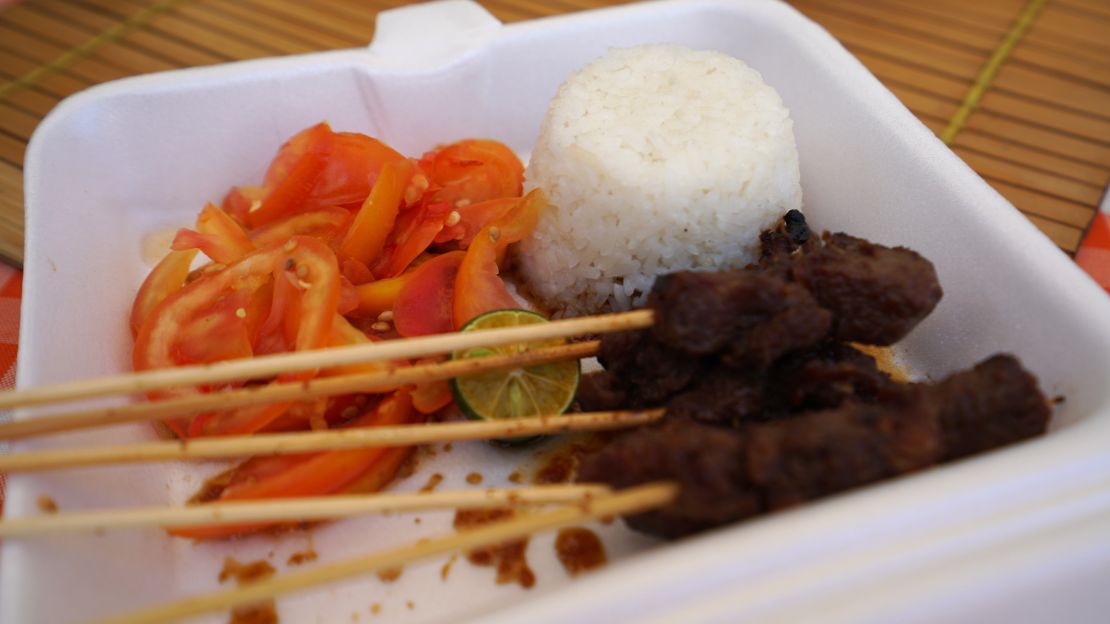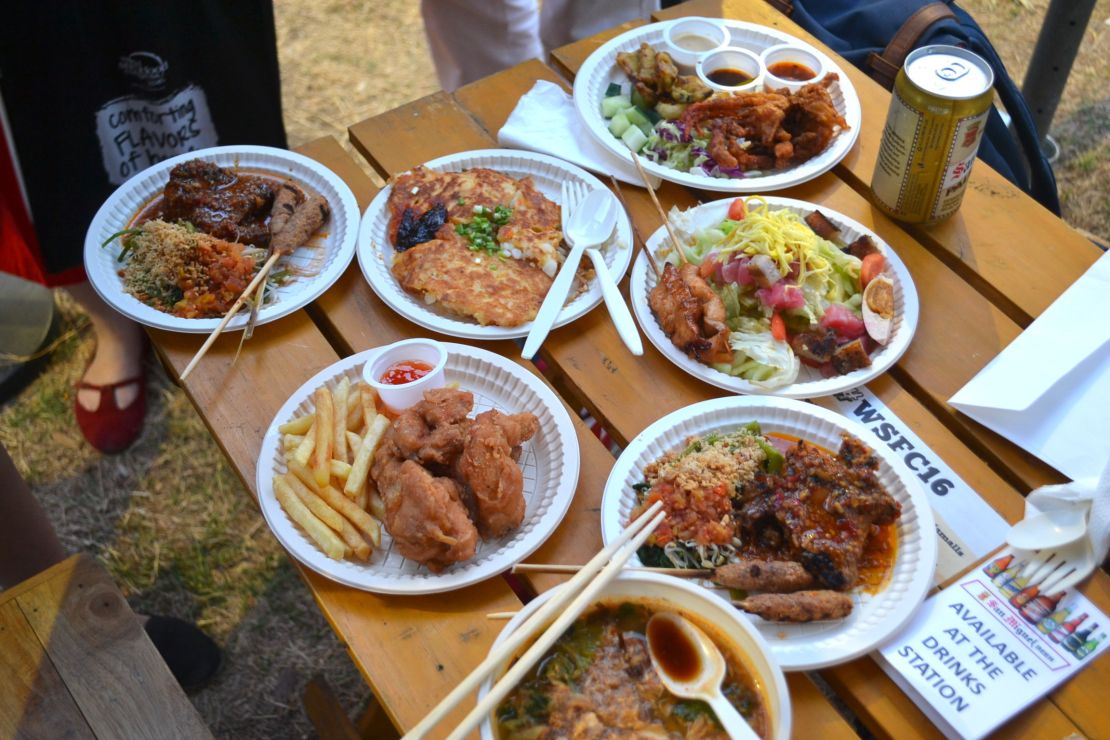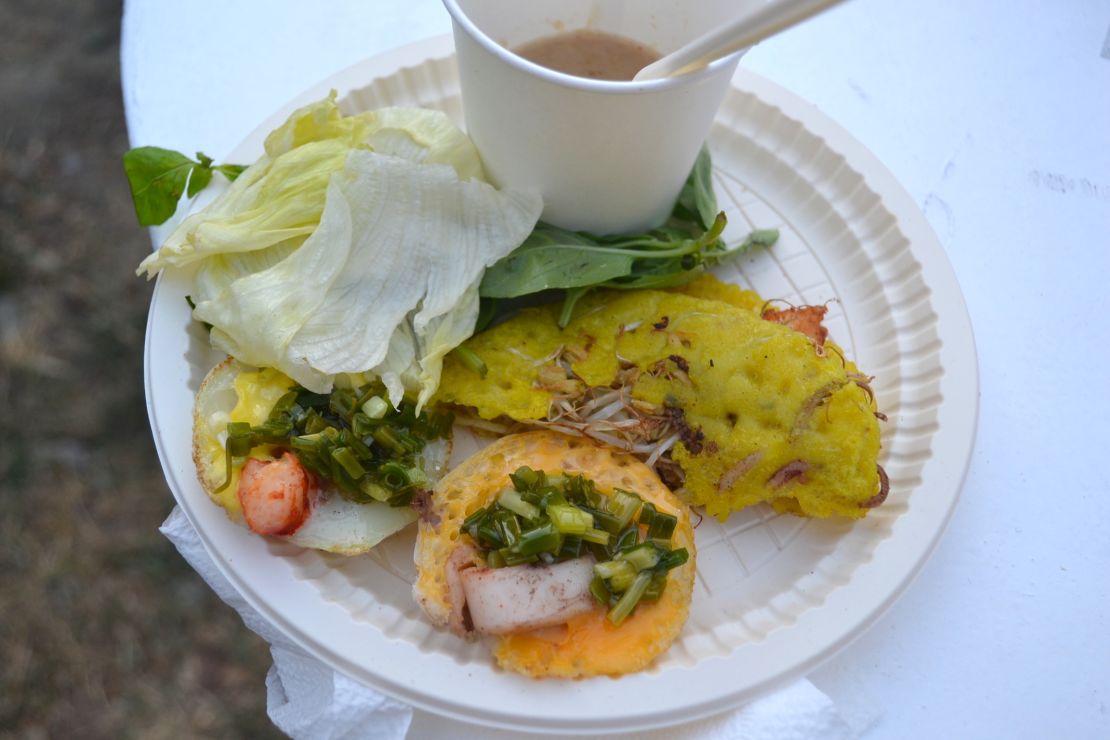Hold the truffles, put away the Wagyu.
Fantastic culinary experiences aren’t just about fine dining on white linen tablecloths. Some of the best and most memorable eating is also some of the most humble: street food.
Stewed pig offal, white radish cake, crispy seafood pancakes and chicken satay skewers – these were just some of the dishes on offer at the third World Street Food Congress exhibiting “the comforting flavors of home.”??
After two successful runs in Singapore, the World Street Food Congress moved to Bonifacio Global City in Metro Manila, Philippines, for its 2016 event.
At the inaugural gathering back in 2013, special guest and current CNN contributor Anthony Bourdain made his feelings clear: “The world so needs a World Street Food Congress.”
This time around, word had clearly gotten out – a staggering 73,000 Manilenos made their way over just five days to the 25 stalls featuring some of the best street food from around the world.
All this, despite temperatures at one stage touching a toasty 40 C (104 F).
“Good food shouldn’t be expensive, it should be comforting, real and affordable,” said K.F. Seetoh, the charismatic founder of Singapore-based Makansutra and creator of the Congress. “That’s where the feeding frenzy happens and where a world of opportunities reside.
“It reminds what a plate of food can do for industry, tourism, your own culture and identity, social enterprise, education – the list goes on, all because of one little plate of endless opportunities.”
Alongside the street feasting festival came a two-day dialogue on the world’s oldest and most popular food culture.
Weighty issues were tackled including sustainability, preservation, cultural relevance and the world of opportunities and challenges faced by the new-found global interest.
Ultimately the brilliant array of dishes were the true stars at the Manila Congress.
Most stalls sold upward of 1,000 portions per day, with one clocking 1,920. Here are eight of the most popular:
1. Malaysia: Assam Laksa
Assam Laksa is a spicy seafood and tamarind soup – serious business in Malaysia, nowhere more so than in one of street food’s great centers of Penang.
It was here that Lim Ee Quen decided to give up her beauty salon to ensure that her decades-old family recipe lived on.
The secret heirloom recipe for the sambal – spice mix – is key in the dangerously good dish which won her the coveted Assam Laksa award in the battle of Penang Hawkers.
Where to get it: Wan Dao Tou Assam Laksa, 1W Jalan Gottlieb, George Town, Penang, Malaysia
2. Indonesia: Sate Maranggi

During the Congress, the team from Sate Marrangi in Indonesia skewered a mind-blowing 125,000 sticks of satay over five days.
But they’re used to big volumes as their once humble stall in Purwakarta, Indonesia, today caters to more than 1,000 customers a day.
The region’s signature dish involves marinated, diced beef grilled over charcoal and served with a deceptively fiery salad of chilli, vinegar and tomato.
A brilliant contrast of flavors and textures.
Where to get it: Sate Maranggi Cibungur, Jl. Raya Cibungur,?Purwakarta,?Indonesia?
3. Thailand: Hoy Tord
Hoy tord?or seafood omelet needs no introduction to fans of Thai food.
A mix of two types of flour, lime and water make the batter, fried gently with eggs and topped with seafood – oysters, shrimp or squid – along with cilantro, bean sprouts, scallions, pepper and a dash of fish sauce.
Crispy outside, softer inside.
Chilli sauce optional.
Where to get it: Hoy Tord Chao Loy, 25 Sukhumvit Soi 55, Bangkok, Thailand
4. India: Hyderabadi Biryani
The word “biryani” may be derived from Persian, but India has been the most famous champion of this popular spiced rice dish with meat or vegetables.
Among many versions, the dish from Hyderabad stands out with its mix of basmati rice, chicken, yoghurt, lemon, masala spices, coriander leaves and fried onion.
Pochamma, 55, has spent a decade selling it on the streets supported by her husband and son.
He’s also been championed by India’s National Association of Street Vendors.

5. United States: Churros Sundae
The Churros Locos food truck from Portland, Oregon, was set up by Mexican-Americans Daniel Huerta and Isabel Sanchez.
The owners maintain corporate day jobs alongside their passion for deep-fried dough sticks under ice cream, nuts and sprinkles.
“Everybody has a connection to churros. We had a guy whose eyes welled up when he bit into our churros,” Isabel said.
“He explained his mom used to take him for churros as a kid in Mexico, but she died last year and he wasn’t able to go bury her as he didn’t have his immigration papers.
“It was the first time he’s tasted them since.”
6. Vietnam: Banh Xeo

Phan Thi Thu Loan trained as an architect before following her passion for preserving the country’s food culture.
She uses a 100-year-old technique, recognized by UNESCO, to make her sizzling banh xeo seafood pancakes cooked in clay pots over a wood-burning fire.
“If I use modern techniques or equipment, I just can’t make the same pancake,” Phan said.
Wrap them with herbs and dip in her criminally good special sauce, based, of course, on a secret recipe.
Where to get it: BanhCan 38, 154 Nguyen Dinh Chinh, Ho Chi Minh City, Vietnam
7.. Singapore: Kway Chap
Congress founder K.F. Seetoh explained that street food in Singapore “is worth a billion dollars a year, an amazing economic driver keeping 40,000 Singaporeans in direct employment.”
Melvin Chew is one of them, maintaining his family’s 35-year-old stall selling kway chap, or pig offal, pork cuts and duck braised in soy served with noodle sheets.
The defiantly old school dish took a new turn when he came up with a Japanese bento style box which is popular with a new and younger generation.
Where to get it: Blk 335, Smith Street #02-156, Chinatown Complex, Singapore
8. China: Zhu Hou Chicken?
In China’s southern province of Guangdong, salt-baked chicken is a frequent sight on tables.
Young chef Xu Jing Ye served his own rendition in Manila featuring a 120-year-old recipe for Foshan sauce, made with soybeans, sugar, sesame seeds and soy sauce.
Attention to detail is everything as, back in China, Chef Xu rears his own chickens to meet his specific requirements of taste and texture.?
Where to get it: 102 House, Guicheng Shi Ken, Huanghe Fang, Yi Xiang Yi Hao, Foshan, Guangzhou, China
Chris Dwyer is a Hong Kong-based food and travel writer and communications consultant. Follow him on Twitter at @chrismdwyer or visit www.finefooddude.com.






